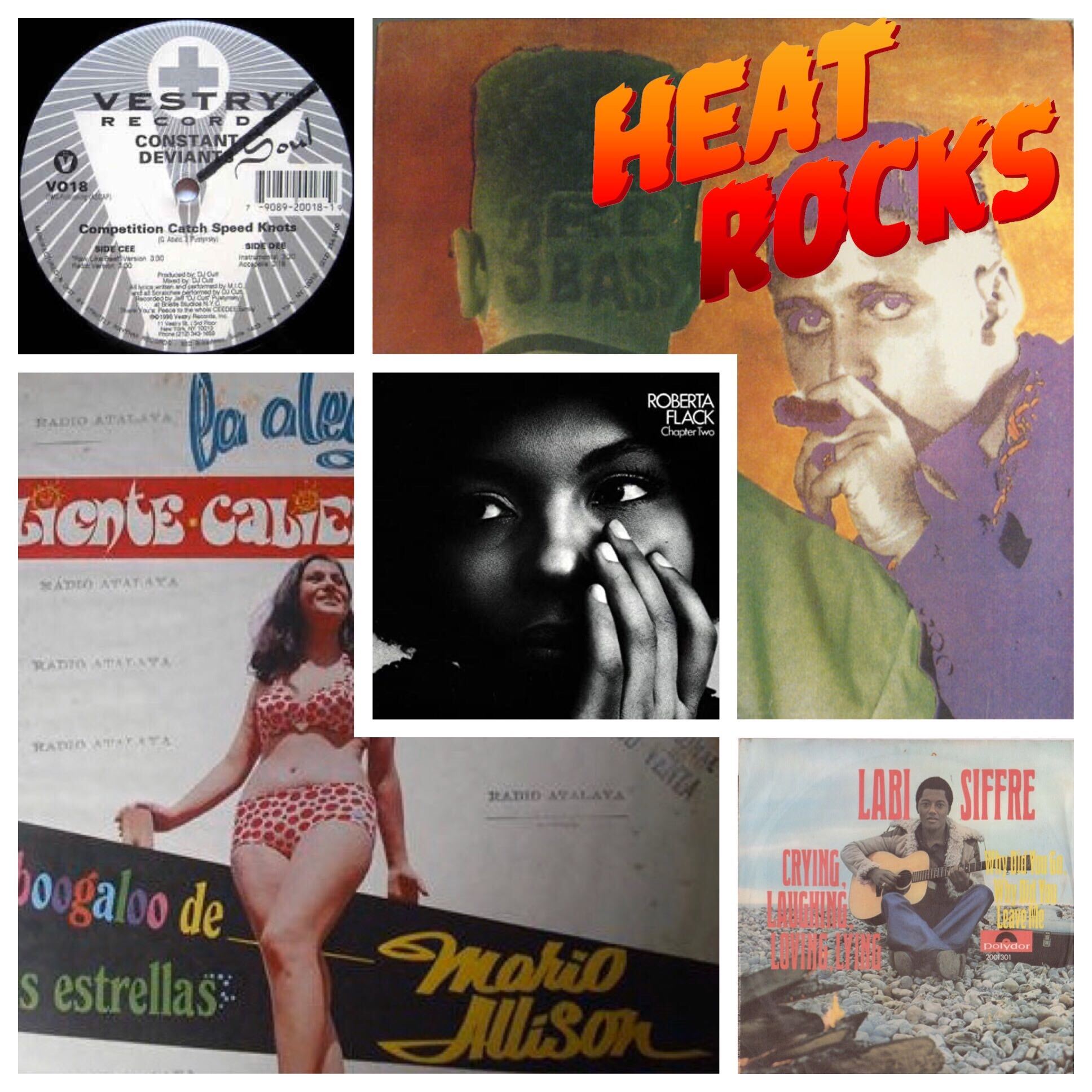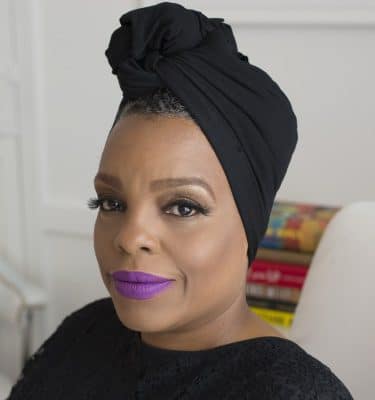Transcript

music
“Crown Ones” off the album Stepfather by People Under the Stairs. [Music continues under the dialogue, then fades out.]

oliver wang
Hello! I’m Oliver Wang. And welcome to another Heat Rocks minisode, part of the Alphabet Soup series that my brilliant cohost, Morgan Rhodes, came up with. Just to recap, the idea here is that each of us is assigned a letter of the alphabet, and then we have to pick five albums that begin with that letter. I was assigned the letter C. And one thing that I learned very quickly is that although C is an incredibly common letter—I actually think it’s the most common non-vowel letter found in the English language. Somehow, though, it's not nearly as common when it comes to album titles, for whatever reason. It’s not as obscure, perhaps as X or Q, but seriously. Album titles beginning with C? Not nearly as plentiful as one might imagine. But that said, I dug around and here’s what I came up with. And to start with, even though I just recently talked about this same very album, back in I believe it was late April as part of the comfort albums series, I gotta bring this one back out. And that is Crying Laughing Loving Lying, the 1972 album by British singer-songwriter Labi Siffre. And one reason why I’m bringing this back is that by sheer coincidence—even though I had mentioned this album back in April—I was contacted a couple of weeks after that episode, not related to the episode, but I was contacted a couple week later by Labi Siffre’s manager, who asked if I would be interested in writing the liner notes for an upcoming box set due out this fall that includes all of Labi’s nine studio albums, plus something like four dozen bonus tracks. And of course, I instantly said yes. Because as I mentioned in that comfort albums episode, I’ve been a huge fan of Labi and his work for well over ten years. And it was—I’ve wrapped up those liner notes, and it was a immense honor and privilege to be able to write them, to work with him, in terms of interviewing him via email about different aspects of his career. And I say this with no ego, but what I turned out I believe would be the most comprehensive package of writing that’s ever been done about Labi and his music. That says less about my efforts and more just about the paucity of material that’s out there about Labi. He is not—I would argue—the most obscure artist. I mean, you can still find things that are written about him. There was something about him just this past April, in fact, in The Guardian UK newspaper, for example. But by and large, there just is not the same amount of attention that’s been given to him, and I really hope these liner notes—all 7000 words of them—help to fill that gap. But I digress. So, as part of my Alphabet Soup, yeah. Crying Laughing Loving Lying. And as I mentioned during that comfort albums episode, I think this is—it’s certainly my favorite of his albums from the 1970s. He put out six different LPs, and this is number one on there for me, personally. It also happens to be the highest charting album of the ’70s that he put out, largely on the strength of the original version of the song “It Must Be Love”. Which some of you probably recognize, because of its popular, early 1980s cover by the UK group, Madness. But it really began with Labi; it was his song. He wrote it. He composed it. And I already mentioned in that comfort albums episode, my favorite song off that album, which is “Cannock Chase”. And for this, I didn’t wanna rerun everything back again, so for my fire track, I’m going with a song that ended up entitling that upcoming box set. Which is “My Song”.

music
“My Song” from the album Crying Laughing Loving Lying by Labi Siffre. This is my song And no one can take it away It's been so long, but now you're here Here to stay [Volume decreases and continues under the dialogue.]

oliver
No doubt astute Kanye West fans will recognize this because Kanye sampled it. But “My Song”, beyond its popularity amongst a younger generation really is a definitive statement about Labi as a singer and as a songwriter. Right? “These are my songs.” They speak a truth to who he is and what he believes. And there’s a reason why he used this song title to entitle his career boxset. So, I thought it would be apropos to choose this as the fire track, since this song clearly has great resonance for Labi himself.

music
[Volume increases.] It's been so long since someone Could make me cry And I wonder if you know what it means To laugh as tears go by [Volume decreases and continues under the dialogue then fades out.]

oliver
It is so pretty! One last time, my song off the Crying Laughing Loving Lying LP released by Labi Siffre in 1972, which came out I think on Pye Records, P-Y-E, in the UK. And as I mentioned in my comfort albums episode, none of his albums from the ’70s were released in the US. And so, it was one of those things that was really tough to find in the State, though it was reissued on CD, back in 2006. And it will be featured on that upcoming box set that I mentioned, called My Song, with liner notes by me! Next up on the C list for this Alphabet Soup mini episode, we have Chapter Two, the 1969 sophomore album—that’s what the “chapter two” or the “two” part of Chapter Two means. It is the sophomore album by Roberta Flack. I chose this one for a different liner notes project. I just recently finished completing liners for an upcoming reissue of Donny Hathaway’s debut album, Everything is Everything. And how this links back to Roberta is that the two of them became friends and of course later professional duet partners, by the 1970s. But they became friends in the mid-1960s, because both of them were students at Howard University. And it wasn’t just the two of them. They were also there with Leroy Hudson, who was Donny Hathaway’s roommate back at Howard. And you just think about all of the talent that existed in that DC area in that moment and it is kind of mind-blowing. Though, I’m sure you could go around the country and cities like Chicago or Detroit or Los Angeles or New York, you can find similar interconnections. But nonetheless, I just love the idea that Donny, Roberta, and Leroy all became friends and then later professional collaborators, because they just were classmates together in school, back in the day. In any case, the reason why I wanted to choose Chapter Two, and specifically the fire track for me off of this album is a song that Donny Hathaway was very much connected to. Which is the song—the cover, really—Roberta Flack’s cover of the Impressions’ “Gone Away”.

music
“Gone Away” from the album Chapter Two by Roberta Flack. I try to reason I tell myself you'll return But you're gone (gone) I know… [Volume decreases and continues under the dialogue then fades out.]

oliver
So, “Gone Away” began life as an Impressions album. I believe it was featured on This is My Country from I think 1968. And it was a song originally written by Hathaway, Hudson, and Curtis Mayfield. This is back when Donny Hathaway was working for Mayfield at his independent label, Curtom, as the in-house arranger, producer, and songwriter: a relationship that, unfortunately, didn’t pan out in the ways that people wanted it to. But at least for a few years, Hathaway was certainly in the mix with things that were happening in Chicago via Mayfield and his roster of artists. And in any case, this is how “Gone Away” was originally composed. Personally, I think Roberta’s cover is better than the original. And I would almost never say that about anything the Impressions put out. But I think she just brings more pathos. It’s a richer arrangement, and I’m almost certain—in fact, I am certain that Donny must have done the arrangement for Roberta on this release on the album. He is credited on there as an arranger. They don’t have songs assigned, but he cowrote the damn song. Like, he clearly arranged this. And part of the reason why I know this is because if you listen to Flack’s version, there’s a portion in the middle that uses a very distinctive, very dramatic horn melody that you can also find in a sped-up form on Everything is Everything. So, now this is the passage I’m talking about on Roberta’s album—or I should say, on her version of Gone Away.

music
“Gone Away” from the album Chapter Two by Roberta Flack. Fa, la, la, la, la Hey! La, la, la, la, la [Volume decreases and continues under the dialogue then fades out.]

oliver
And when I was listening to Everything is Everything, I spotted that same melody being used on Donny Hathaway’s cover of Ray Charles’ “I Believe to My Soul”. Like I said before, it’s faster than what you hear in Roberta’s version. But it’s definitely the same melody also carried on the horns.

music
“I Believe to My Soul” from the album Everything is Everything by Donny Hathaway. Oh yeah, I believe baby I believe you're trying to make a fool out of me, yeah [Volume decreases and continues under the dialogue then fades out.]

oliver
I hadn’t seen anyone else make this connection—and I’m sure someone has. I mean, these are two really popular albums. I don’t have extra special ears. It just happened to be a connection that I haven’t seen anyone mention. And I also can’t figure out which version was recorded first, because both Flack and Hathaway were working on their respective albums more or less at the same time, in the summer and fall of 1969. My gut is that Donny first came up with it for Everything is Everything and then when he was sitting down to do the arrangement on “Gone Away” for Roberta Flack, decided to bring it back and make it into something even bigger. But of course, it could’ve gone the other way where he had done it for Flack first and really liked how it sounded and decided to kind of sneak it into his version of “I Believe to My Soul”. So, whichever version though, these are connected—these two artists, Hathaway and Flack, are connected. And this really notable horn line also connected between these two songs. So, this was my way—by using Flack, by using Chapter Two as part of my Alphabet Soup, I could tell you all a little bit of a story about Donny Hathaway, as well. Hope you guys enjoyed that. And look out for that reissue sometime this fall. For my third choice, it seems only appropriate that I go with 3rd Bass and their 1989 debut The Cactus Album. Now, the album’s title is a analogy, metaphor. It is a allusion to the penis. And I don’t know if I would have chosen the cactus as being my phallus substitute, because ouch. Of course, on the same album, they describe the vagina as “the oval office”. So, maybe they were just coming up with really off-color dad jokes early. Whatever. I actually still really like this album, apart from the fact that it was also very hard to find a hip-hop album that begins with the letter C besides The Chronic. And The Cactus was one of the first—it was one of the early hip-hop albums I actually bought. As I’ve talked about on the show before, my introduction to rap music came via a dubbed cassette tape that had License to Ill on one side and Raising Hell on the other. The first hip-hop album I actually purchased myself was Three Feet High and Rising by De La Soul, but that was followed—I think The Cactus Album might have been the second album I bought after that. And it was largely because I really liked their single, “Steppin’ to the A.M.”.

music
“Steppin’ to the A.M.” from the album The Cactus Album by 3rd Bass. Ready in the intro, cue up the Serch-lite Point us to the center stage (I'll grab the first mic) Projecting the voice with this mic that I'm cuffing You ain't my nucka, sucker I'm snuffing [Volume decreases and continues under the dialogue then fades out.]

oliver
In the annals of hip-hop history, 3rd Bass was seen as the first legitimately good rap group that happened to be fronted by White rappers. That would be Prime Minister Pete Nice and MC Serch, along with their DJ—who is African American—DJ Richie Rich. Keep in mind, in the late ’80s, the playing field for White rappers was really thin. You had The Beastie Boys, certainly, but they were still in their frat boy phase from the License to Ill era. They had not yet remade themselves with Paul’s Boutique and then later Check Your Head and the whole Free to Bet thing. So, they weren’t really being taken super seriously by people who really cared about hip-hop. Vanilla Ice probably might have been making moves around now. I forget if “Ice, Ice Baby” was an ’89 or 1990 hit. But regardless, nobody was taking Vanilla Ice seriously as an MC. So, really 3rd Bass were the first White rappers to really lay down the fact that we are really good quality rappers and don’t take us not-seriously just because we happen to be White. And the fact that they were signed to Def Jam I think is meaningful, because Def Jam was going to invest their reputation behind these guys, even though I’m sure Russell Simmons and company probably thought that—with a couple of White guys—they could maybe market this to more of a crossover audience and sell some extra records. All that aside, The Cactus Album was really good. You got production on here by Sam Sever, by Prince Paul. You have features from members of KMD, which included Zev Love X, better known these days as MF Doom. So, this was a really well-crafted album. I think it really holds up, even now—what? 30+ years later. If I had to pick a fire track that’s actually on the LP itself, I would go with “Brooklyn Queens”, which was a really fun, bouncy, party track that they put out also on single.

music
“Brooklyn Queens” from the album The Cactus Album by 3rd Bass. Real cool, cause Brooklyn's cool! Friday June the last day of school Girls stepping to the mall to swing Setting up dollars for their summer fling [Volume decreases and continues under the dialogue then fades out.]

oliver
But that said, the real fire track off—not so much off the album, but by the group in this era, was the Marly Marl remix of a song off this album, “Product of the Environment”.

music
“Product of the Environment (Remix)” from the album The Cactus Revisited by 3rd Bass. In the heart of the city your pops nutted Twelve months later your moms stuttered The side of your grill, ill creational You grew up, your rhymes were recreational [Volume decreases and continues under the dialogue then fades out.]

oliver
Wooo! Ugh, I still get hype off of that intro scratching that they do on there. Oh, it’s so good. It’s so good. Again, that’s the “Product of the Environment” remix, not featured technically on the LP. Though, they did release The Cactus as a remix EP. I think it’s called The Cactus Revisited. So, I guess I could have chosen that as my C choice, but I wanted to bring attention to the actual, formal LP. And if you guys really like “Product of the Environment”, you can find that remix online, I’m sure. For my number four choice, I’m taking it back from 1989 and we are spinning it back to 1969 or thereabouts with the Peruvian Latin artist, Mario Allison Y Sus Estrellas, which I would believe would translate into Mario Allison and the Stars. And this is the Colombian issue of his album. And it is entitled—and thus fitting into my C category, the title is Caliente-Caliente-Caliente. Now, this is maybe perhaps a bit of a cheat, because Mario Allison’s original Peruvian issue of the same album had a different title entirely. I don’t remember what it was, but it doesn’t begin with C. But nonetheless, Caliente-Caliente-Caliente is the version of the album that I happen to own. So, I’m saying it counts. And regardless, I love this album. And part of it is because when boogaloo music, originating in New York City, traveled throughout the rest of the world—especially down to South America—one of the interesting things that happened is that countries like Colombia and Peru, they have a really well-defined and very long tradition of their own regional, Latin dance style. So, it’s not as if they just kind of just arrived out of the sky and they had no idea what to do with Latin soul and boogaloo music. They simply incorporated elements of that into the kind of music they were already doing locally in their respective countries and the specific music scenes within it. And so, there is, to me, a subtle difference oftentimes between hearing a boogaloo track as it was composed in New York as opposed to the ones that were composed in South America. And I think this Mario Allison album happens to highlight some of those—like I said, they’re not major differences, but I think it’s noticeable, nonetheless. And in any case, this is an album entitled Caliente-Caliente-Caliente. So, you would expect that it’s got nothing but fire on it. And my fire track off of this LP—it’s hard to pick, because it’s really good, but I think I gotta go with his song “San Juan”.

music
“San Juan” from the album Caliente-Caliente-Caliente by Mario Allison Y Sus Estrellas. [Volume decreases and continues under the dialogue.]

oliver
I mean, come on! That is straight fire. That is en fuego, as they might say down there. So, once again, that is Mario Allison Y Sus Estrellas with the album Caliente-Caliente-Caliente, as it was entitled from Colombia. And as always, I’m just really happy to be able to talk about any kind of Latin music, because I tend to find that, of the various genres in which I know at least a little something about, people seem least interested in Latin. Like, if it’s hip-hop, awesome! If it’s soul, yeah, absolutely. Jazz, maybe. But then I talk—I wanna talk about Latin music, and it’s like crickets out there. So, any excuse I have to highlight a Latin album, Latin artist, I’m gonna do it.

music
[Volume increases.] [Volume decreases and continues under the dialogue then fades out.]

oliver
For number five, I’m gonna cheat here, because I’m not gonna go with an album. I’m gonna go with a song. And this is from 1996. And this is a double C, because the group is called Constant Deviants, and the song is called “Competition Catch Speed Knots”.

music
“Competition Catch Speed Knots” from the album Concrete Utopia by Constant Deviants. Yo, I be the top pick of the first draft Whose raft gets felt when opposed is dealt with dramatically? It had to be that M.I smooth shit, respect my crew get [Volume decreases and continues under the dialogue.]

oliver
“Competition Catch Speed Knots”. This came out in 1996, on the independent label, Vestry, and while you may not find this song listed on the Best Songs of 1996—the best hip-hop songs, at least, of that year—I think it absolutely is in contention to be somewhere on that list. I was out in the Bay Area then, and I just remembered this 12-inch caused quite a little bit of a sensation within the circles that I kept, because it was so raw. I mean, it’s really just—what? It’s a bassline and it’s a drum track and some really nice scratching done by the producer, DJ Cutt. And then lyrics by MIC, who was the MC on there. And how mid-’90s is that? The group is called Constant Deviants, and it’s led by DJ Cutt and MIC. That is—that is ’90s hip-hop in a nutshell. And I think this single, it still bumps for me almost 25 years later. And I just had to sneak it in, because if we’re talking about the C part of the Alphabet Soup, this whole single is covered in Cs! The group is called Constant Deviants. The song is called “Competition Catch Speed Knots”. And their DJ and the producer is named DJ Cutt. So, it’s got Cs everywhere, here. And for those of you who have never heard this before, I just think it’s a treat to be able to share it with you.

music
[Volume increases.] Hip-Hop culture the galaxy surrounding me My poetry demonstrates where my mind be at, so don't hesitate I meditate like Buddhists, who's this? A verbal assault weapon Discrepancies don't even try to get the best of me I bring drama from the dick, bee And simply end MC's careers verbally [Volume decreases and continues under the dialogue.]

oliver
Thank you all for indulging me and my episode—my minisode of the Alphabet Soup series. Next time we come back, it’ll be the letter D and Morgan Rhodes will be back to take care of that. Of course, check out our upcoming episodes of Heat Rocks. We’ve got the summer planned out. There’s gonna be a lot of fun stuff for you to listen to. And as always, you can find more info about us at HeatRocksPod.com. For Heat Rocks, I am Oliver Wang, and I will see y’all next time!

music
[Volume increases.] Take your best shot Suckers, suckers Catch the speed knot [Song fades out.]

sound effect
Cheerful ukulele chord.

speaker 2
Comedy and culture.

speaker 3
Artist owned—

speaker 4
—audience supported.
About the show
Hosted by Oliver Wang and Morgan Rhodes, every episode of Heat Rocks invites a special guest to talk about a heat rock – a hot album, a scorching record. These are in-depth conversations about the albums that shape our lives.
Our guests include musicians, writers, and scholars and though we don’t exclusively focus on any one genre, expect to hear about albums from the worlds of soul, hip-hop, funk, jazz, Latin, and more.
New episodes every Thursday on Apple Podcasts or whatever you get your podcasts.
Subscribe to our website updates for exclusive bonus content (including extra interview segments, mini-episodes, etc.)
Meanwhile, you can email us at heatrockspod@gmail.com or follow us on social media:
People
How to listen
Stream or download episodes directly from our website, or listen via your favorite podcatcher!



